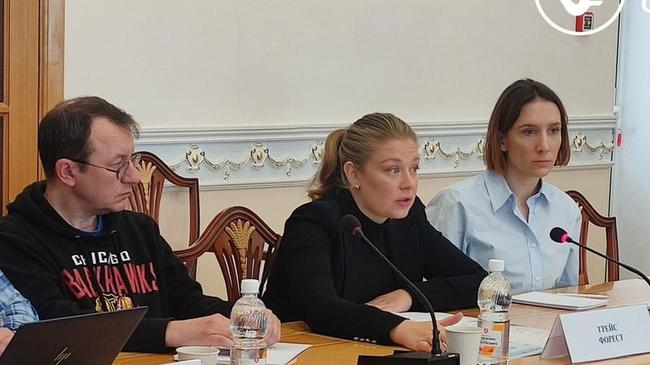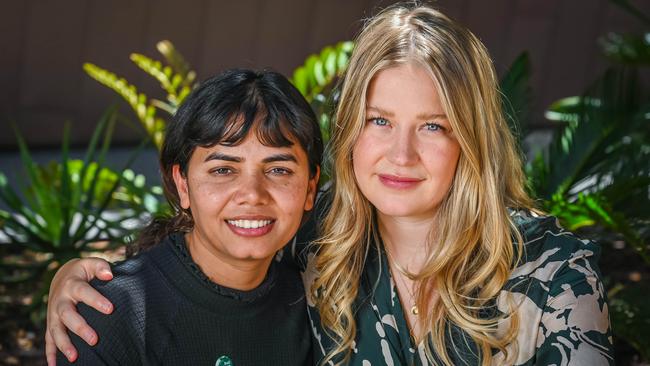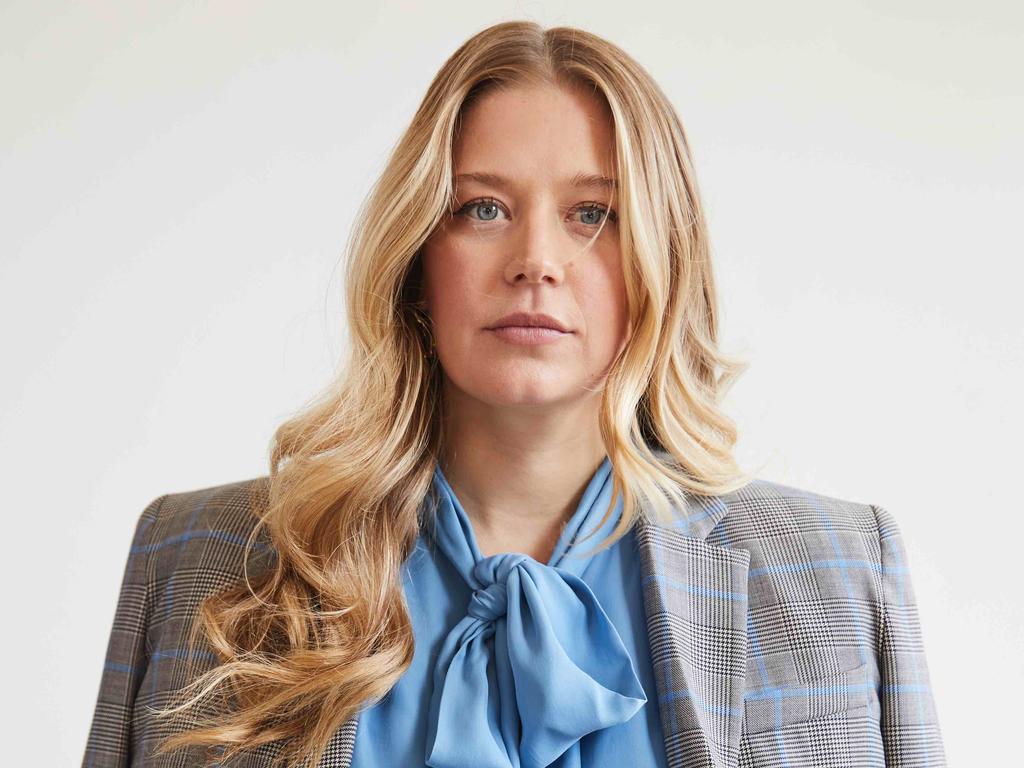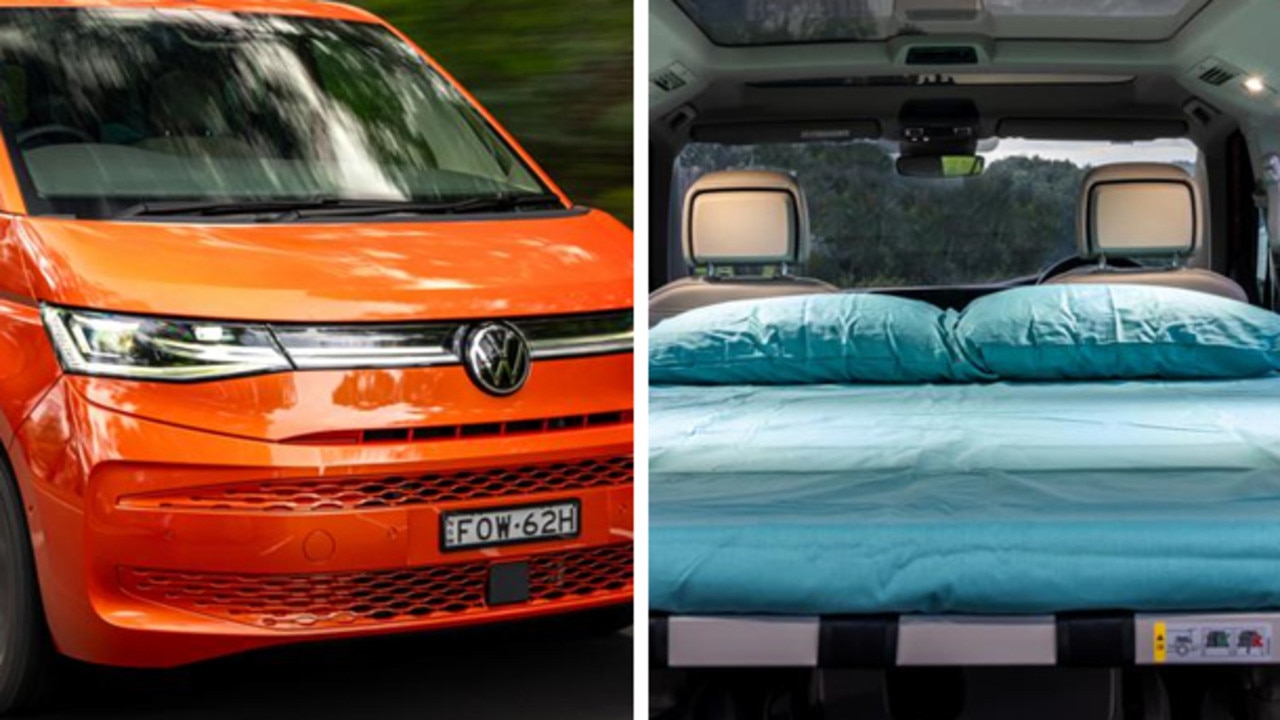Grace Forrest’s Walk Free wins recognition for decade of taking on modern slavery
Human rights activist Grace Forrest says winning the prestigious Roosevelt Freedom From Fear Award is a step forward in challenging the rise in slavery.

Human rights activist Grace Forrest last week became the first female Australian recipient of the prestigious Roosevelt Four Freedoms Award, bestowed in The Netherlands.
Forrest was honoured alongside Brazilian indigenous activist, environmentalist and politician Sônia Guajajara, Netherlands-based investigative journalism group Bellingcat and Zumretay Arkin, chair of the Women’s Committee at the World Uighur Congress.
Previous recipients of the award, made annually since 1963, include US Supreme Court justice Ruth Bader Ginsberg, US presidents Jimmy Carter, Bill Clinton and Harry Truman, and world leaders including former German chancellor Angela Merkel, the Dalai Lama and Nelson Mandela. Forrest is only the second Australian to be recognised. Former Australian foreign minister Gareth Evans was a recipient in 2010.
“To be recognised by a platform with such a deep history of human rights and international law was incredibly humbling and equally, to be given the award for the lifespan of Walk Free. They were referencing things that I was shocked that they knew about … work that I’ve been doing over a number of years,” Forrest said during her most recent visit to Sydney and portrait sitting for Vogue Australia.
Forrest, 30, based in London, established Walk Free more than 10 years ago with the goal of eradicating modern slavery.
“Freedom from fear at its core is about protecting civilians (in) conflict zones. And I think it’s really brave and fantastic that the Roosevelt Foundation has chosen to give that a platform specifically on the issue of modern slavery. Because the harsh reality is there are tens of millions of people living in modern slavery in the world today.
“Equally, the letter that I received (upon receiving the award) referenced the fact that The Netherlands had abolished slavery 150 years ago, and yet there are more people living in slavery now than any other time in human history.”

In modern times, “slavery” is an umbrella term for different types of highly exploitative practices where one person is exploited by another for personal or financial gain. This includes human trafficking, forced marriage and forced labour.
The daughter of Western Australian mining magnate Andrew Forrest and philanthropist Nicola Forrest, Grace Forrest was raised to “do what you can with what you have”.
She studied international relations, social justice and political science at the University of Notre Dame in Western Australia, and describes herself as being an “intense” child who cared deeply about the plight of others.
One of Forrest’s projects as a primary school student was selling her mother’s sherbet (“before there was a ban on sugar!”) at her school to raise money for a playground in Ethiopia after learning from a friend’s mother that there were no playgrounds in that country. “Doing what you can with what you have is something that does apply to everybody. And for the influence and platform that I have, that will always grow alongside what I plan (to) do with it,” she says.
Forrest is particularly committed to making the lived experiences of survivors central to her advocacy in general and to her work on the Global Commission against Slavery and Trafficking, chaired by former British prime minister Theresa May.
“It was very important to me and others in the commission that survivors of modern slavery, as experts in the field, were on that commission as well as advising it from multiple angles,” she says.
“I wouldn’t join a body like that without people with lived experience and now won’t accept speaking opportunities or engagements with the UN unless somebody with lived experience is also a part of that. That’s something that everyone with the platform should be doing.”
The most recent data from Walk Free, which publishes The Global Slavery Index, found modern slavery has increased. “These are people who don’t have access to their most fundamental human rights. It is a highly gendered issue and connected to compounding crises that we face throughout the world, from the climate crisis to protracted conflict to even the Covid-19 pandemic … there are more people living in slavery now than any other time in human history,” she says.
While her focus is on structural and system change, Forrest says consumers also have power – in what they buy, the questions they ask of brands and companies, and changing what she calls “scarcity mindsets”, as well as challenging rampant consumerism.

She points to fashion – one of the top five categories for instances of modern slavery – as an example.
“Every brand should be able to tell you who is making their clothes and have transparency over their supply chain. The reality is, ethical brands remain the exception rather than the rule. And as this industry continues to innovate, all we are asking is that it innovates to include labour practices that aren’t reliant on forced and child labour. I don’t think any Australian consumer knowingly wants to buy something linked to another person’s exploitation.
“I think it’s really about pushing back on this instant-gratification culture. A T-shirt shouldn’t cost less than a sandwich because, on average, a hundred pairs of hands have touched one garment, from the growing of the cotton to the spinning of the thread to the manufacturing of the piece itself.”
Brands she believes are setting a new standard include New Zealand’s Maggie Marilyn, which she wore to accept her award in The Netherlands, and Kowtow Clothing. “I just really celebrate the people that have gone against the grain because, to be clear, the fashion industry by default is exploitative,” Forrest says.
“Fashion has such an opportunity and responsibility to change things. (The) industry is about expression and joy and beauty and belonging: I think we just need to expand that definition to include people in all levels of the supply chain and also celebrate them as the makers,” she says.
“People are much more aware now – and that’s also due to the pandemic – of the fragility of our interconnectedness and especially through the global supply chain. People are asking more questions and they’re hoping that brands are going to do the right thing.
“And the introduction of the Australian Modern Slavery Act put modern slavery on the agenda in a way that it hadn’t been before, but that legislation is not strong enough. We need human rights due diligence laws to be mandated by our governments to ensure that the cost of doing business isn’t modern slavery.”
Grace Forrest is profiled in the April issue of Vogue Australia, out now.






To join the conversation, please log in. Don't have an account? Register
Join the conversation, you are commenting as Logout